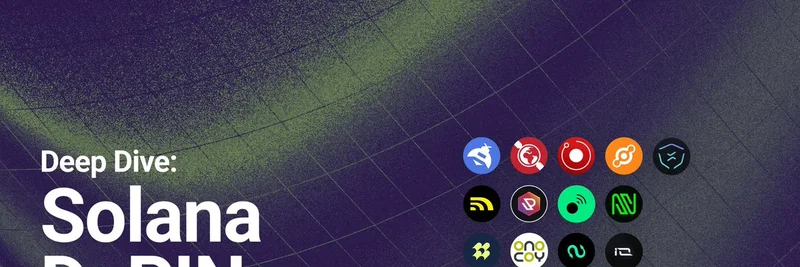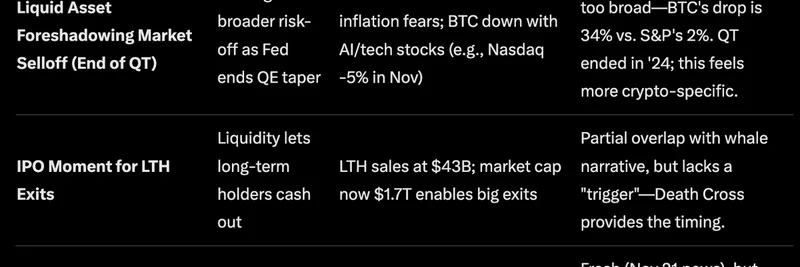If you're keeping tabs on the Solana ecosystem, you've probably noticed how Decentralized Physical Infrastructure Networks—or DePIN for short—are making waves. These are basically blockchain-powered networks that crowdsource real-world infrastructure like wireless hotspots, mapping data, or even computing power. Think of it as Uber but for hardware, where anyone can contribute and earn tokens. Recently, Syndica dropped a detailed thread on X breaking down the October 2025 stats, and it's packed with insights showing DePIN's resilience and growth on Solana.
Revenue Holds Steady at Peak Levels
One of the big takeaways? Solana DePIN revenue is rock solid, clocking in at over $2 million for the second month in a row. Protocols like Helium, Render Network, Hivemapper, UpRock, NATIX Network, and GEODNET are leading the charge. This stability suggests the sector is maturing, with consistent demand driving these numbers.
Helium Tops Year-to-Date Growth
Helium stands out with a whopping 787% revenue growth year-to-date. Even as one of the bigger players, it's outpacing others, proving that wireless DePIN is still a hot spot (pun intended). If you're new to Helium, it's a network where people set up hotspots to provide IoT connectivity and get rewarded in tokens.
Deployer Rewards and FDV-to-Revenue Ratios
Rewards for deployers—those folks running the hardware—dipped a bit in October to $3.6 million, but the year-to-date total is impressive at $81 million across projects like Helium, Hivemapper, Render, io.net, GEODNET, NATIX, Sallar, UpRock, and Wayru. Meanwhile, the fully diluted valuation (FDV) to revenue ratios are coming down as revenues catch up to hype-driven valuations. For instance, Helium went from 87k at its peak to 322, Render from 126k to 9.5k, and Hivemapper from 4.6M to 3.9k. This is a healthy sign that the market is valuing these projects more realistically.
Helium Mobile's Milestone Achievements
Diving deeper into Helium, its mobile arm hit $6 million in year-to-date revenue, with October alone bringing in $1.7 million—a 13% bump. Subscribers are now over half a million, adding 50k for the third month straight. Data offload is growing too, with daily averages up. They even rolled out an iPhone 17 campaign and a new unlimited calls/texts plan, which could supercharge adoption.
Wireless and Mapping Protocols Shine
In wireless, Dabba Network saw data consumption skyrocket 50% to 5k TB, even with fewer hotspots. WeRoam rebounded with 31% more new users at 40k and steady 40 million check-ins, plus it's the cheapest eSIM option out there—over twice as affordable as competitors in the US.
For mapping, NATIX and Hivemapper together mapped over 350 million kilometers with 430k drivers year-to-date. Hivemapper's revenue doubled to $77k in October, hitting a 2025 high, and they snagged RICOH as a client for pavement management. Contributors stayed steady at 7k monthly actives, and rewards shifted toward first-time mapped areas. Onocoy also hit a rewards ATH at 1.1 million $ONO, thanks to bonus incentives.
Compute Demand on the Rise
Compute-focused DePIN isn't slacking either. Nosana ran 229k jobs in October, up 8%, totaling 1.6 million year-to-date, thanks to faster deployments and Asian marketing. io.net's compute hours and revenue ticked up 4-5% to $931k, boosted by integration with AiMo Network for pay-for-inference.
Notable Developments and What's Next
Syndica also shouted out emerging players like Pipe Network, Ping Network, StarPower, and NATIX for their progress. If this kind of deep dive gets you excited about Solana DePIN, check out Syndica's full report and subscribe to their newsletter here.
Overall, Solana's DePIN space is proving it's not just hype—it's generating real revenue and expanding utility. Whether you're a builder, investor, or just curious about where blockchain meets the physical world, these trends are worth watching as we head into the end of 2025.



